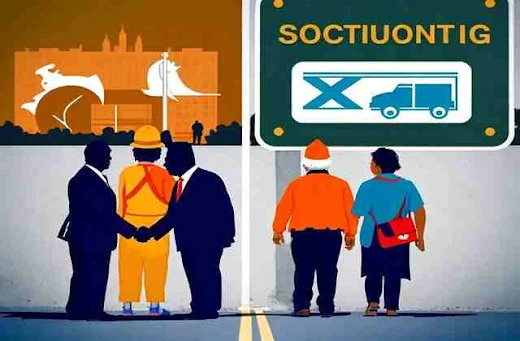Top 10 Cultural Universals: Understanding Human Commonalities
Introduction
Understanding cultural universals is like discovering the threads that weave the fabric of humanity. These universals transcend geographical boundaries and time, highlighting the shared aspects of human existence. So, what exactly are these cultural universals, and why are they so crucial? Let's dive into the top 10 cultural universals to get a clearer picture.
What Are Cultural Universals?
Cultural universals are elements, patterns, traits, or institutions that are common to all human cultures worldwide. They serve as a testament to the shared aspects of the human experience, showing us how, despite our diversity, we have fundamental similarities. My Journey in a New Country
The Importance of Cultural Universals
Why do cultural universals matter? How Do Cultural Universals Connect Different Cultures? They help us understand the essence of humanity. By studying these commonalities, we gain insights into the ways different cultures approach life, solve problems, and celebrate their existence. It's a reminder that we are all connected, despite our differences.
Top 10 Cultural Universals: Understanding Human Commonalities
1> Language
- The Role of Language in Communication
- Language is the cornerstone of human communication. It's how we express our thoughts, share our emotions, and connect with others. Every culture has a language, whether it's spoken, written, or signed.
- Language as a Cultural Identifier
- Language also acts as a cultural identifier, preserving the history, values, and traditions of a community. It's more than just words; it's a reflection of a culture's soul.
2> Family Structures
The Universal Family Unit
Families are the building blocks of societies. They provide support, nurture, and education to individuals. Every culture has a concept of family, although the structure may vary.
Variations in Family Structures
From nuclear families to extended kinship networks, the family unit can take many forms. Despite these variations, the core function of providing love and support remains constant.
3> Religious and Spiritual Beliefs
Common Spiritual Practices
Religion and spirituality offer ways for people to find meaning, purpose, and connection to something greater than themselves. Rituals, prayers, and ceremonies are universal practices that fulfill spiritual needs.
Religion as a Cultural Pillar
Religion often acts as a pillar of culture, influencing laws, customs, and daily life. It provides a moral framework and a sense of community.
4> Art and Music
- Expressions of Culture through Art
- Art is a universal language of expression. From cave paintings to digital art, humans have always found ways to express their creativity and cultural narratives.
- The Universality of Music
- Music, like art, transcends cultural boundaries. It is an emotional expression that brings people together, celebrates cultural heritage, and marks important events.
5> Social Norms and Laws
Establishing Order through Norms
Social norms are unwritten rules that govern behavior in a society. They ensure order and predictability, helping communities function smoothly.
Laws as Cultural Frameworks
Laws formalize these norms, providing a framework for justice and governance. They reflect the values and priorities of a culture.
6> Cooking and Cuisine
Culinary Traditions Across Cultures
Food is a universal necessity, but how we prepare and enjoy it varies greatly. Each culture has its culinary traditions, reflecting its history and environment.
Food as a Cultural Bond
Sharing meals is a common way to build relationships and celebrate cultural identity. It's a delicious way to connect with others and experience different cultures.
7> Celebrations and Rituals
- Universal Celebratory Practices
- Celebrations are a universal part of human life. Whether it's a wedding, festival, or holiday, every culture has its ways of celebrating significant events.
- Rituals Marking Life's Milestones
- Rituals often mark important milestones such as birth, adulthood, marriage, and death. These practices provide structure and meaning to life's transitions.
8> Clothing and Adornment
Traditional Dress Across Cultures
Clothing serves both functional and symbolic purposes. Traditional dress often reflects cultural identity, status, and beliefs.
Symbolism in Clothing
Adornment can include jewelry, tattoos, and other body modifications, each carrying its own cultural significance and stories.
9> Shelter and Architecture
Common Architectural Features
Shelter is a basic human need. While the styles and materials may differ, every culture develops its own architectural solutions to protect from the elements.
Cultural Significance of Shelter
Architecture also reflects cultural values and aesthetics, from grand temples to humble homes, showcasing the creativity and priorities of a society.
10> Education and Knowledge Transfer
- The Role of Education in Culture
- Education is essential for the survival and progression of any culture. It ensures that knowledge, skills, and values are passed down through generations.
- Methods of Knowledge Transfer
- Methods of education vary, from formal schooling to apprenticeships and oral traditions. Each culture has unique ways of teaching and learning.
Conclusion
Cultural universals highlight the shared aspects of the human experience. By exploring these commonalities, we can better appreciate the rich diversity of our world while recognizing the threads that connect us all. From language and family structures to art and education, these universals remind us that, despite our differences, we are all part of the same human story.














This article does a wonderful job highlighting the commonalities that bind humanity across diverse cultures. By exploring universal aspects such as language, family structures, religion, art, and more, it beautifully underscores how these elements reflect shared human experiences and values. The insights provided help foster a greater appreciation for both our differences and our common threads. A compelling read for anyone interested in understanding the essence of global cultural connectivity.
ReplyDelete